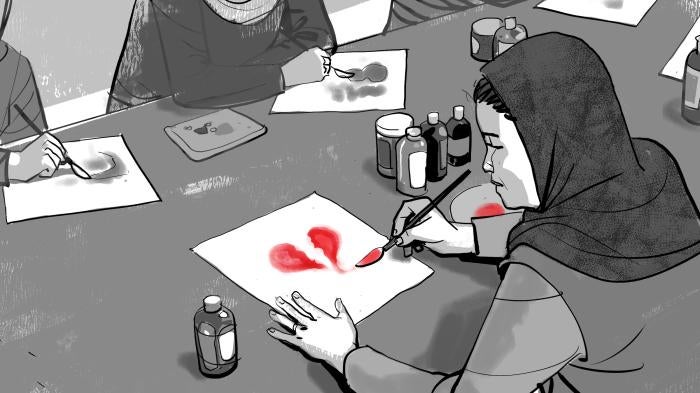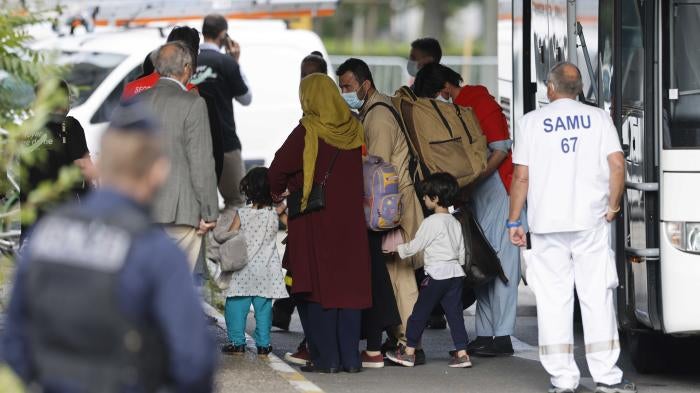Afghan Evacuees Living in France Need Mental Health Support
Read a text description of this video
Voice Over:
Following the Taliban takeover of Afghanistan many people including interpreters, human rights activists and journalists were evacuated.
Many had suffered past trauma and what they experienced at Kabul Airport was terrifying.
“Rafi” , Voiced of Actor:
It was absolutely horrible. There you saw the soldiers, the Afghan [government] soldiers, how they were treating people and guns firing. I saw a lot of things there which was truly sad. The small children, the babies, the women, they were under the feet of everybody and nobody cared.
Voice Over:
The relief some evacuees felt after arriving in France was short-lived as traumatic memories resurfaced. While some received psychosocial support, others continue to struggle on their own.
“Roya” , Voiced of Actor:
I have a hole in my heart about my people and my country but I can’t do anything from here.
We feel we are safe, but we worry about our family. I talked about my emotions when we went to art therapy. They showed me some way so that I don’t stay in shock mode. I’m gonna be better.
Voice Over:
There is no health without mental health. France should expand the provision of psychosocial services to evacuees. Evacuees and those assisting them, should be informed about accessible mental health services.
(New York, March 24, 2022) – Many Afghans evacuated to France as the Taliban took over their country more than six months ago are experiencing trauma and psychological distress, Human Rights Watch said today. While France has provided important support to evacuees, including many with professional ties to the country, there remains a significant gap in terms of urgent and adequate psychosocial support.
As Taliban forces took control of Afghanistan in August 2021, Afghans who had worked with foreign governments and militaries, and in Afghanistan’s government, military, and security positions found themselves at heightened risk of persecution. Journalists and others who worked for foreign nongovernmental groups in various capacities, including promoting human rights and democracy, found themselves in the same position. Many fled the country at short notice, in some cases leaving behind family members.

